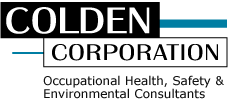A successful workplace vaccination policy uses pre-existing legal frameworks and ad hoc regulatory guidance to balance employee rights with novel business realities facing COVID-19.
By Mitchell Boyarsky, Shannon R. Magari and Jennifer Mallory
Despite scientific evidence regarding the success of Pfizer-BioNTech’s and Moderna’s COVID-19 vaccines under “Operation Warp Speed,” and a U.S. government thrust to inoculate the public, employers still should exercise care when implementing vaccine policies for the workplace. Vaccine mandates have long been controversial, and unfortunately a uniform public opinion on the necessity of COVID-19 vaccines remains unclear. Thus, without a decisive legal pronouncement by the federal government permitting employers to institute a mandate, employers should exercise caution to avoid potential legal pitfalls when devising a vaccine policy and potential mandate by allowing for legal exceptions and anticipating possible resistance based on language in FDA Emergency Use Authorizations (EUAs) for vaccine manufacturers. As discussed in this article, a successful workplace vaccination policy uses pre-existing legal frameworks and ad hoc regulatory guidance to balance employee rights with novel business realities facing COVID-19.
Drafting a Vaccination Policy
A complication for employers generally to institute workplace compliance programs stems from the patchwork of federal, state and local legal frameworks—and a steady flow of COVID-19 informal government agency guidance. For instance, issues of workplace health and safety related to a vaccination policy may implicate the Americans with Disabilities Act (ADA), Title VII of the Civil Rights Act of 1964 (Title VII), the Occupational Safety and Health Act (OSHA), the Family and Medical Leave Act (FMLA), the National Labor Relations Act (NLRA), the Fair Labor Standards Act (FLSA) and various state and local laws including workers’ compensation laws.
Due to unique legal challenges involved with the COVID-19 pandemic, some regulators have issued ad hoc regulations and informal guidance to help employers navigate these rocky waters. For instance, the U.S. Equal Employment Opportunity Commission (EEOC) issued practical guidance that may be interpreted as permitting mandatory vaccination policies under the various federal laws enforced by the EEOC (i.e., laws concerning workplace discrimination based on race, color, religion, sex, national origin, age, disability, or genetic information). See U.S. E.E.O.C., What You Should Know About COVID-19 and the ADA, the Rehabilitation Act, and Other EEO Laws, Section K (Dec. 16, 2020). Likewise, the general counsel of the U.S. Department of Health and Human Services (HHS) issued advisory opinions suggesting that employers implementing vaccination policies may qualify as “program planners” under the federal Public Readiness and Emergency Preparedness (PREP) Act. See 2 U.S.C. 247d-6d et seq. The PREP Act is designed to protect public and private efforts related to combatting public health emergencies. It can be invoked to immunize certain covered persons, including program planners, for implementing certain medical “countermeasures,” including a policy or plan to administer a vaccine consistent with the terms of the applicable EUA. Accordingly, when employers act as program planners and meet the requirements of the PREP Act, the HHS Emergency Declaration, and the EUA’s specific terms, they may be immune from certain legal liability for implementing a vaccination policy.
While the EEOC and HHS have published COVID-19-related statements that loosely address employer-implemented COVID-19 EUA vaccine policies, no federal agency has yet specifically authorized employer-implemented mandatory vaccination programs for EUA vaccines that have not undergone the full biologics approval process. Thus, any workplace vaccination policy related to the EUA vaccines is not without legal risk. Indeed, the express language of the Pfizer-BioNTech and Moderna EUA vaccines may weigh against mandatory vaccination policies at this time.
Here, the Pfizer-BioNTech and Moderna vaccine EUAs require that recipients be advised of the option to accept or refuse the vaccine. However, the EUAs do not include a condition that recipients be advised of any potential consequences (if they exist) of declining the vaccine, which is more limited than what FDA could have authorized under the Statute. See 21 U.S.C. §360bbb-3(e)(1)(A)(ii)(III). Consequently, a mandatory vaccination policy that does not allow an employee to refuse the vaccine without suffering any consequences might be interpreted as improperly adding an unauthorized “condition” that could bar accessing protection under the PREP Act. Future regulatory guidance and litigation on this issue may provide insight until the vaccines are approved by FDA outside the EUA context.
Employers should expect (and prepare for) some degree of employee opposition to vaccine policies, whether or not mandatory. Here, employers have the benefit of existing (and familiar) legal frameworks such as the ADA or Title VII—as recently interpreted by the EEOC in its Dec. 16, 2020 guidance—to address potential requests for medical or religious accommodations (supported by appropriate documentation). Under those frameworks, employers will need to determine whether any potential accommodation either (1) would not sufficiently reduce or eliminate the “direct threat” posed by the pandemic or (2) would impose an undue hardship on the employer.
But even with a requirement to provide employees accommodations under a mandatory policy, the exceptions need not swallow the rule. Current vaccines are only medically-discouraged for individuals with severe allergies to the vaccine’s ingredients (the Pfizer-BioNTech and Moderna vaccines each have seven ingredients) or to the vaccines themselves. And nearly all religions permit vaccination, with the exception of the Dutch Reformed congregations and certain Christian denominations that emphasize faith healing to the complete exclusion of modern medicine.
Even when a medical or religious accommodation is granted, EEOC guidance advises that employers may exclude employees from the workplace as a medical or religious accommodation. Just as COVID-19’s direct threat to workers’ health justified employers’ medical examinations of employees—including more in-depth health-related questions, medical screening before allowing employees to report to work and other similar conduct—the EEOC guidance suggests that the direct threat may justify a mandatory vaccination policy (when one can be implemented consistent with FDA guidance) with exclusion from the workplace for non-compliant workers.
Communicating Policy Effectively
Mitigating legal risk also involves an effective communication strategy—in addition to a legally-sound policy—to build and maintain employee trust. Thus, a successful policy should articulate a specific goal (e.g., full vaccination of customer-facing employees by May) and should tailor its message to differing audiences by appealing to appropriate considerations (e.g., protecting family or community members), working around pre-existing barriers (e.g., misinformation about and mistrust of vaccines) and delivery through different media by trusted communicators (e.g., FAQs and small group meetings). Employers can build further trust by explaining and emphasizing the benefits of the vaccination—in addition to any consequences from non-compliance—by focusing on the trusted scientists behind the vaccine development and by inviting employees to participate in active dialogue, with employers open to answering questions without judgment of concern or skepticism.
Practical Considerations
While employers await further guidance on COVID-19 vaccination from applicable state and federal authorities, some practical issues exist for consideration now regarding an approach to vaccination, including:
- While vaccination policies present challenges related to medical and religious accommodations, the absence of a policy is problematic. Without a vaccination program, employers may face claims under OSHA, or tort or workers’ compensation claims for failing to meet the obligation to provide a safe and healthy work environment.
- Employers should actively encourage and consider incentivizing workers to get vaccinated. Measures to promote employee vaccination could include: (1) outreach to company group health insurers to inquire whether the vaccine is covered by the group policy, (2) stipends or reimbursements for vaccination, (3) guidance on obtaining vaccines (when more widely available), (4) allowing employees to use PTO and other applicable leave to get vaccinated or manage the side effects of vaccination, (5) sharing educational materials and providing a forum for answering employee questions, (6) demonstrations of personal commitment by company executives (e.g., testimonials concerning vaccination and express appreciation to employees for getting vaccinated).
- Requiring employees to get vaccinated at independent third-party providers, such as physicians’ offices or pharmacies, limits risk under the ADA and Title VII but may implicate wage or sick leave laws.
- Create a thoughtful vaccination policy (incorporated into existing reopening plans) and enforce this policy as consistently and uniformly as possible. Work within existing frameworks to consider religious and medical accommodations on a case-by-case basis.
- Communicate company policy to employees effectively, bearing in mind employees’ differing views and perspectives and using risk-communication strategies to build consensus and mutual trust.
- Stay mindful of state and local laws, regulations and orders concerning vaccinations and reopening plans. Employers with locations across multiple jurisdictions should tailor policies to account for variations among state and local authorities.
- For employers in a unionized setting, consider whether a vaccination policy fits within applicable collective bargaining agreements or triggers bargaining obligations.
In the current vacuum of clear and controlling federal, state and local guidance and with many questions unanswered regarding the safety and efficacy of COVID-19 vaccines for those who receive doses, employers considering vaccine policies as part of their return-to-work plans or as an enhancement to workplace health and safety as the vaccines become increasingly available should consult with legal advisers to evaluate appropriate policies and accommodations issues.
Mitch Boyarsky and Jennifer Mallory are partners at Nelson Mullins Riley & Scarborough. Shannon R. Magari holds a Doctor of Science in Environmental Health from Harvard University with a concentration in Occupational Epidemiology and serves as Vice President of Health Sciences at Colden Corporation. Nick Ladin-Sienne, an associate, assisted with the preparation of this article.
This article was published on February 4th, 2021 in the New York Law Journal.
For a PDF of this article, click here: http://www.colden.com/wp-content/uploads/2021/02/NYLawJournalSMagariCOVID.pdf

